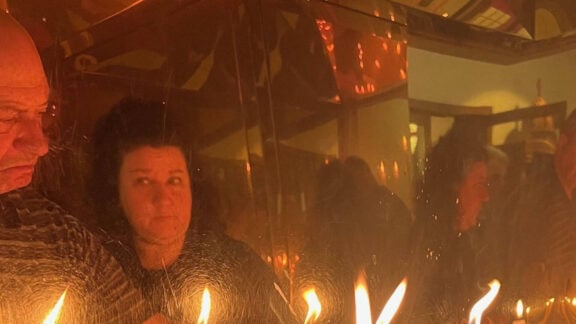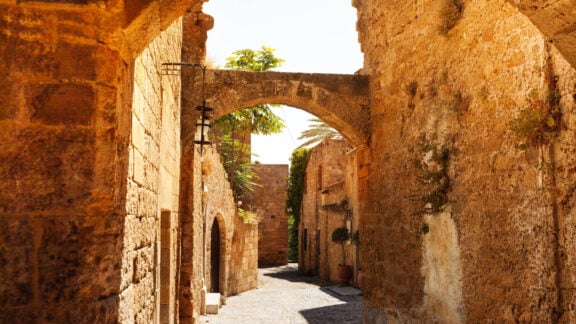It is definitely a sign of the times; every time some kind of disaster, be it a natural phenomenon, an accident or a terrorist attack, happens somewhere in the world, social media are there to alert people and help those connected to send a signal: “I’m safe”. Sofia Stavrianidou was no exception; an expat from Athens to Berlin, she made use of Facebook’s security check-in feature, to assure her friends and relatives that she’s not in danger, after the shocking terrorist attack on Monday, when a truck drove into a crowded Christmas market, leading to the death of twelve and the injury of around 50 people. Five days later, the prevailing sentiment in her adopted hometown is one of fear.
“We’re numb and afraid here”, she admits. “The media transmit images and information day and night, giving directions to people to avoid panic, but to be very careful at crowded places. All the hospitals were on stand-by on the first day. A friend of mine is a surgeon and they called him back to the hospital; he went straight to the operating theatre”.
As afraid as they may be, Berliners keep a high spirit, she says. “Berlin is a safe city and the German people are cold-blooded, they don’t show emotions easily; they also show great trust to their law officers and their country’s security system in general. Of course, they’re shaken by what happened, which is only natural; they understand that they’re not unbreakable”.

Many were those who believed that a terrorist attack in Germany was to be expected, after the events in Paris, Nice, and Bruxelles. “They’ve been writing about it, here and there, that Berlin is the next terrorist target, but we did not believe it”, says Sofia Stavrianidou.
Less than a week after the event, many questions remain unanswered: ISIS was quick to claim responsibility; the first suspect arrested by the police proved to be an innocent asylum seeker from Pakistan; and the whole issue is proving to be a trial for Angela Merkel’s leadership. German citizens accuse the Chancellor of inaction, criticising how she put a black cover photo on her Facebook account, but stalled too long before making a public statement and when she did, confirming suspicion of a terrorist attack, it was her image and her policies that seemed to be at stake.
“If the perpetrator is a refugee, things are bad”, says Ms Stavrianidou, echoing the public sentiment and commenting on the critique that the German Chancellor receives both from the opposition and within her administration. Both sides seem to believe that Monday’s attack was an after-effect of Merkel’s “open border” policy, a daring, humanitarian, progressive response to the refugee crisis.
“This is grotesque”, says Mrs Stavrianidou, an experienced publicist and media professional.
“If Merkel has done anything right, it is her open policy towards migrants. It’s what European Union is all about, this is what we want. And now, she’s punished for her only positive policy. Her party was defeated in the recent local elections in Berlin and this was attributed to her migrant policy. Europe can be contradictory like that”.








